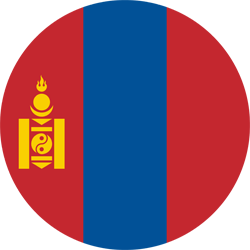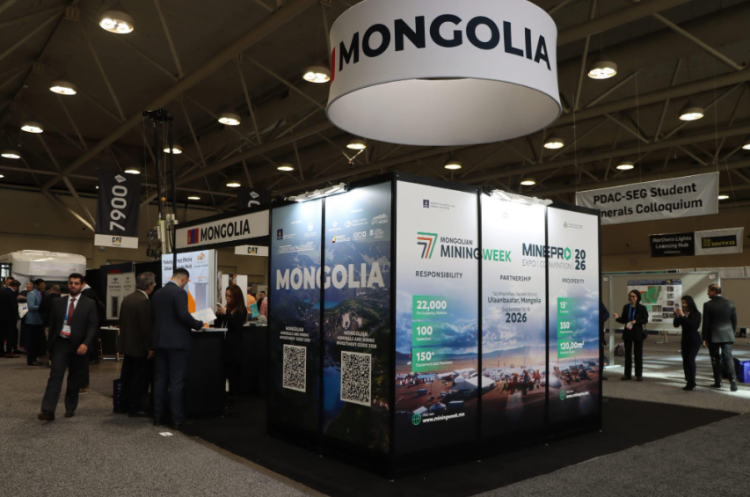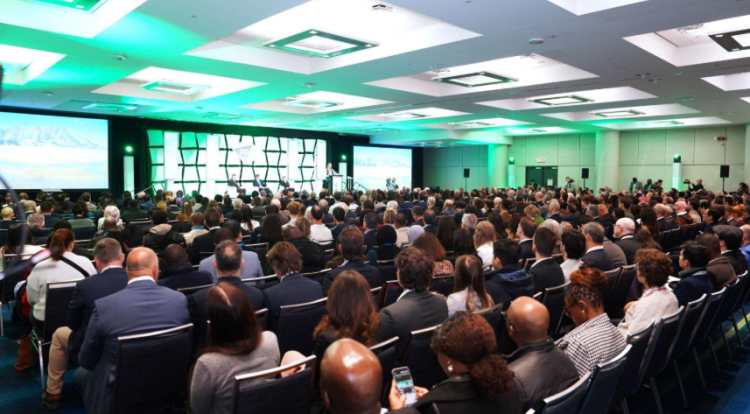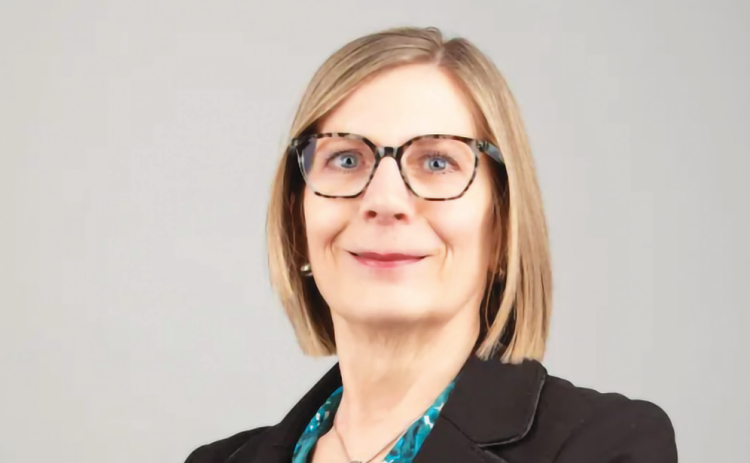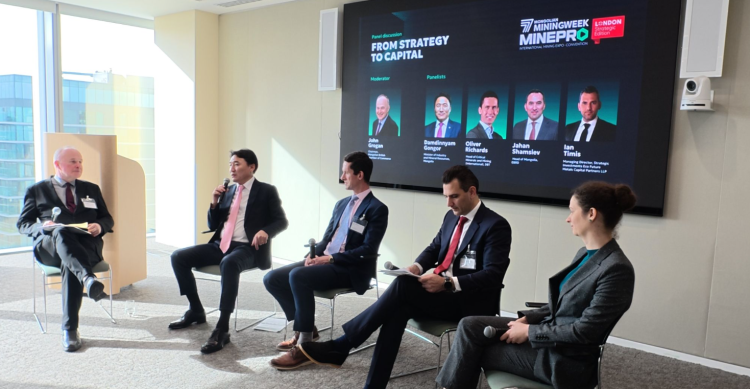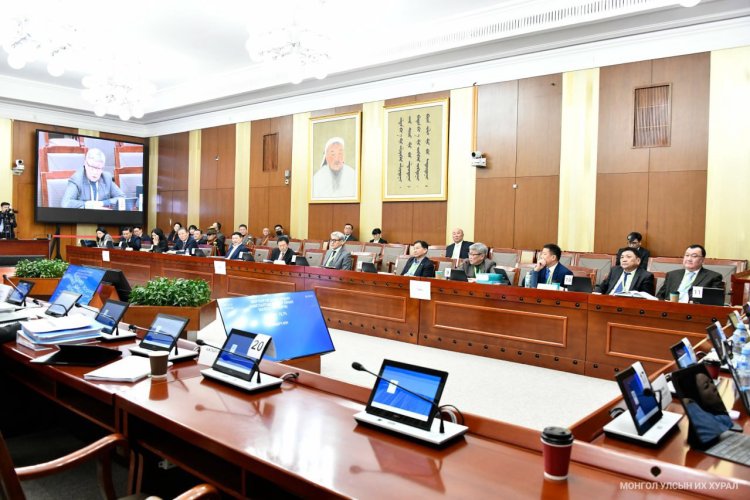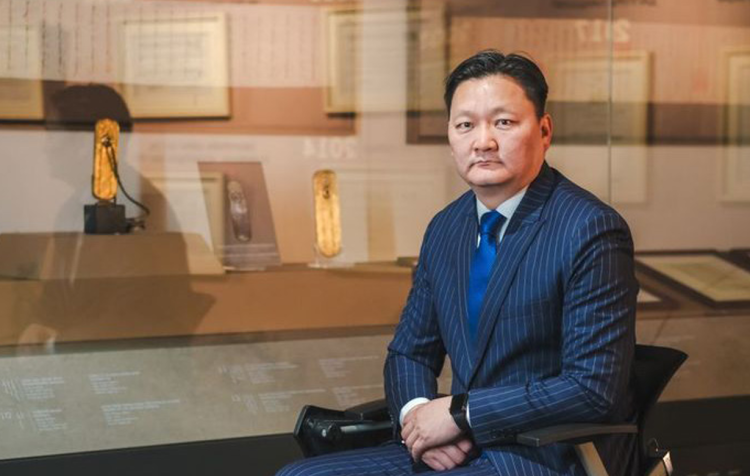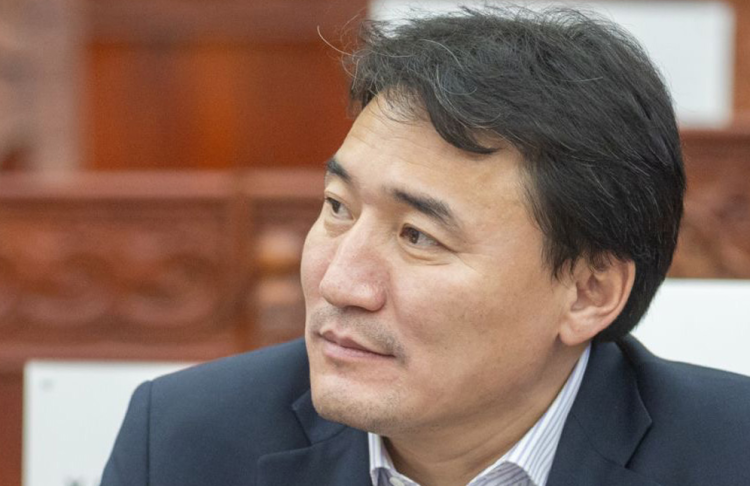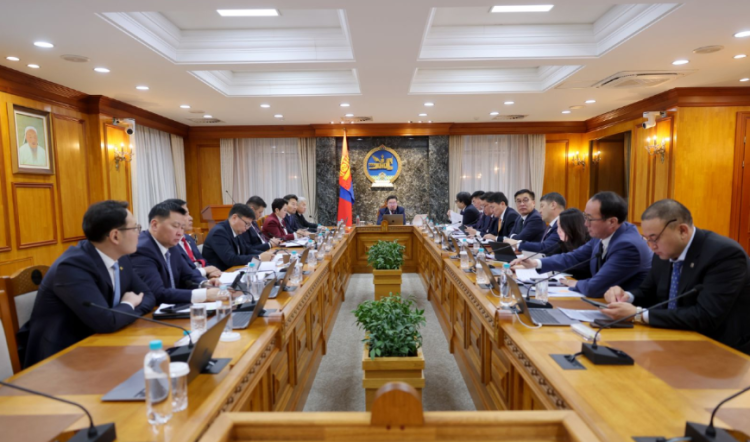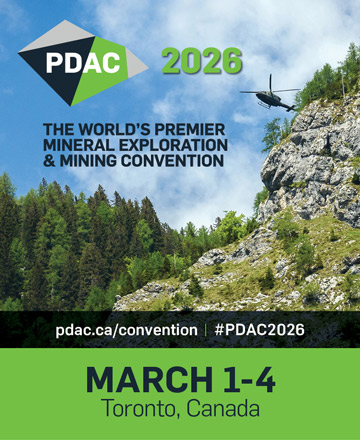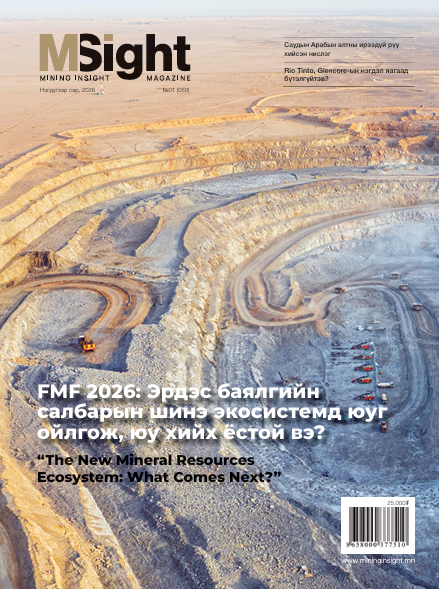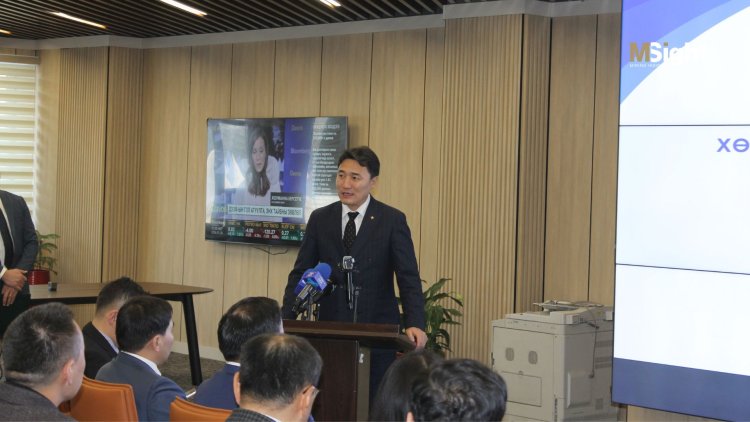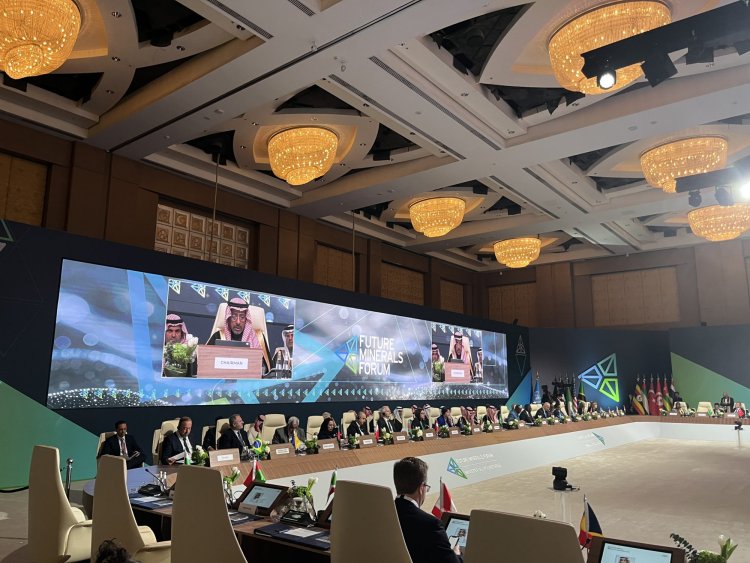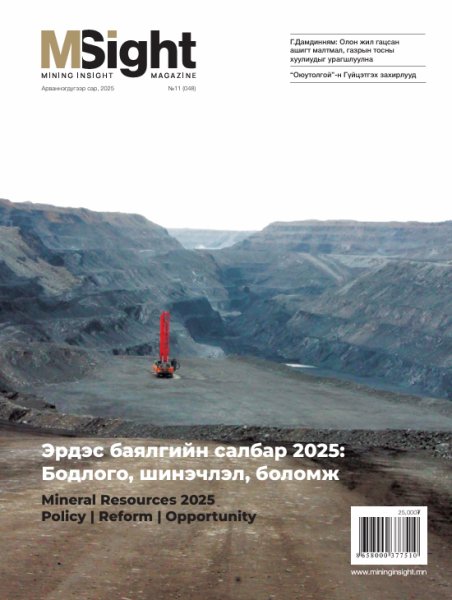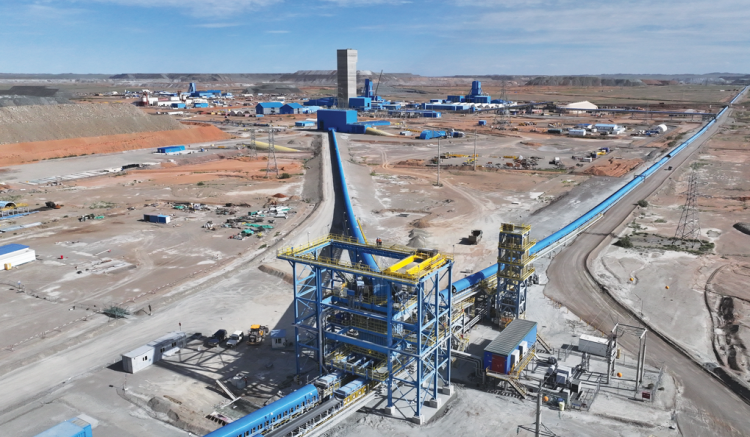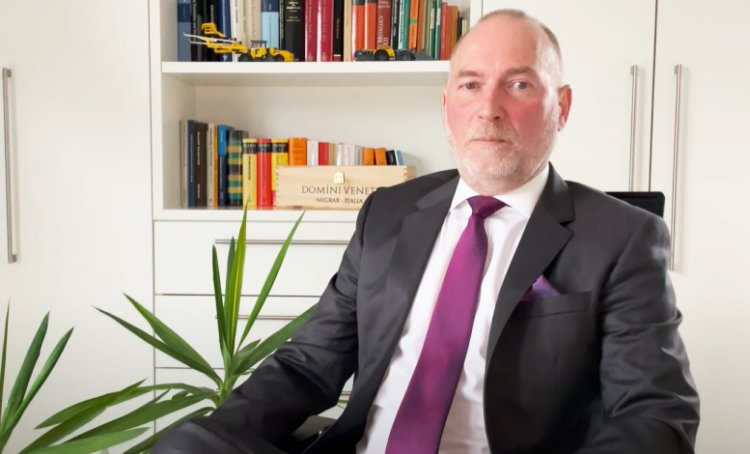 Interview with Dr. Thomas Hollenberg, Vice President of the German-Mongolian Business Association.
Interview with Dr. Thomas Hollenberg, Vice President of the German-Mongolian Business Association.
Can you introduce yourself to our readers?
My name is Dr. Thomas Hollenberg and I am a mining engineer by profession. I have dedicated over two decades to the mining industry, transitioning to a role as a mining consultant since 2009, while since then also engaging in teaching on a part-time basis. My teaching experience includes visiting lecturing tenure at Clausthal University of Technology in Germany In 2016 I moved to Windhoek and became Director and Professor of the Mining Engineering Program at the Namibia University of Science and Technology. After my return to Germany in 2018 I continued to expand my consulting business before I contributed from 2020 to the German Academic Exchange Service: I took over the Program Coordination of Raw Materials and Process Engineering at the German-Mongolian Institute for Resources and Technology GMIT and additionally the position as Vice Rector for Academic Affairs for the next two years 2022 and 2023. In recent years, I have been actively fostering discussions within my field, not limited to students, but especially engaging with Mongolians to share the knowledge and insights I have accumulated. My journey within the Mongolian mining industry started already in 2014, when I developed a strategic planing for Erdenes Mongol LLC and subidiaries which was financed by the Worldbank. In 2020 I was part of a mining advisory group to the Ministry of Mining and Heavy Industry for the contract negotiations with Oyu Tolgoi.
Furthermore, we conducted trainings on behalf of the German BGR for MMHI, MRPAM and NGS on the international JORC and the NI 43-101 resource and reserve estimation methods in comparison with the Mongolian method as well as trainings on geomechanics and geotechnics of surface and underground mining operations. My research conducted in 2021 about “Mining in Mongolia” and 2023 about “Transport and Logistics in Mongolia” is available online on the website of the German-Mongolian Business Association (DMUV), where we are member with our German company DHC - Dr. Hollenberg Consulting GmbH as well as our mongolian subsidiary DHC Mongolia LLC. Since last year, I have held the position of Vice President within DMUV, having been elected during the annual meeting. This year, I will present research specifically focused on rare earth elements.
Could you kindly provide more details or context about the German-Mongolian Business Association? Regarding your association, could you elaborate on how you assist and foster collaboration between businesses from both countries?
DMUV was initially established in Ulaanbaatar in 1995 and has been officially registered as a nongovernmental organization since 2009. It operates in collaboration with the German Chamber of Commerce and Industry in foreign countries, and serves as a partner organization to the Federation of German Industries (BDI), playing a significant role in fostering economic ties between both nations. Our association offers comprehensive guidance to German business owners encompassing advice on taxes, investments, mining laws, and the legal landscape in Mongolia. We promptly address customer inquiries for advice, positioning ourselves as a primary gateway for most German companies entering the Mongolian market. At present, I am engaged in meetings with two business partners associated with our organization from Germany, along with relevant government officials of Mongolia. Both companies possess exploration and exploitation licenses in Mongolia. One is comprised of investors who have already acquired gold licenses in Mongolia, while the other is exploring the establishment of a steel plant. These companies are committed to reinvesting their profits within Mongolia, expanding their operations, and executing a long-term plan aimed at enhancing value addition.
Previously, how has your association contributed to fostering economic and business relations between Mongolia and Germany?
Our association serves as a business conduit, streamlining the establishment of businesses for entrepreneurs in both Germany and Mongolia. We actively maintain regular communication with our member organizations, facilitating the exchange of information. A key partner for us at the federal level is the German-Mongolian Economic Committee (DMWA), established in Mongolia in 2011 during the official state visit of German Chancellor Angela Merkel. Annually, the committee organizes a meeting gathering political and business representatives from both countries. To familiarize colleagues with the business landscapes and entrepreneurs in Germany and Mongolia, I regularly update them on relevant business events in both nations. DMUV boasts a diverse network of economic and business partners, uniting 105 companies – the largest number among foreign organizations operating in Mongolia.
I heard you were also a lecturer at the GermanMongolian Institute for Resource and Technology, is that correct?
I got in touch with the German-Mongolian Institute for Resource and Technology (GMIT) through Dr. Rolf Peter, GIZ in 2015 for the first time. In 2019 a clasmate of mine at the RWTH Aachen, Dr. Peter Vossen contacted me and told me that he terminated his contract at GMIT. Peter had been teaching at GMIT. Additionally, I received an offer from the German Academic Exchange Service, which I seriously considered before deciding to join GMIT. My initial experience in 2020 coincided with the pandemic, leading to online lessons for students. While acknowledging the challenges of online training, I found it less effective in comparison to traditional methods. Upon the easing of the epidemic situation, I returned to Mongolia in 2021 and assumed the role of Vice Rector for Academic Affairs at the bilateral University in 2022. During this tenure as a teacher at GMIT, I revised the engineering programs,, updated the master's program, and founded collaborations with two German universities. In 2023 the year of departure from the position, I organized and chaired the International Regional Meeting of the Society of Mining Professors (SOMP), which brought together professors and industrial representatives from five continents under GMIT's auspices in June. DMUV collaborates with the Mongolian University of Science and Technology in sharing know-how. Addressing the broader issue of a shortage of specialized mining experts in Mongolia, during my time at GMIT, we sent several students to Germany for internships, where they received geomechanics training. These graduates are now working at the Oyu Tolgoi mine. One of my graduates currently pursues geotechnical engineering studies in Australia. Mongolians who have studied abroad, particularly in countries like Germany, generously share their experiences with Mongolian companies through online platforms.
You mentioned that your research on rare earth elements will be published on the DMUV’s website this year. Mongolia, as a neighbor to the world's largest mining and producing country of rare earth elements, holds a significant position. If we embark on mining rare earth elements, what are the potential positive and negative consequences from both political and environmental perspectives?
Mongolia, situated between two giant neighbors. The only way to avoid transport routes through neighboring countries would be by air transport, beside of other risks this bears very limited transportation capacity. In discussions with the aforementioned two German investors visiting Mongolia, it was highlighted that a steel factory doesn't necessarily have to be large-scale; it could operate as a family business or workshop. Additionally, other raw materials could be produced on a smaller scale. Importing equipment from Germany to construct a large steel plant is currently challenging due to geopolitical considerations. Transportation through Russia currently is impractical. However, considerations involving China, the world's largest steel producer, come into play. It makes you ponder whether China will allow the transfer of steel industry technology across its territory. Even if Mongolia emerges as a steel producer, exploring export opportunities after fulfilling domestic consumption will pose potential challenges that will require careful consideration. From the perspective of Mongolia, it appears more feasible to transition from primary processing to the subsequent stages for exports. Rare earth mining presents both political and environmental advantages and disadvantages. Mongolians must conduct a thorough study on the subject. China strategically acquires rare earth and other deposits of critical minerals everywhere in the world, aligning with its national policy. Even the United States exports its mined rare earth elements to China for processing despite possessing techniques and technology. The environmental impact and health concerns associated with this practice raise crucial questions. Mongolia must carefully examine the extraction and processing of its rare earth elements, considering the experiences of other nations. Mongolian researchers have been delving into the know-how of rare earth elements for over a decade, but continuous study is essential. In the evolving technological landscape, further research becomes imperative. Beyond Mongolia, global communities share the common desire to ensure responsible mining practices, safeguarding both people and the environment from indiscriminate exploitation.
Thank you for the interview.
Mining Insight Magazine, March 2024 №3 (028)
